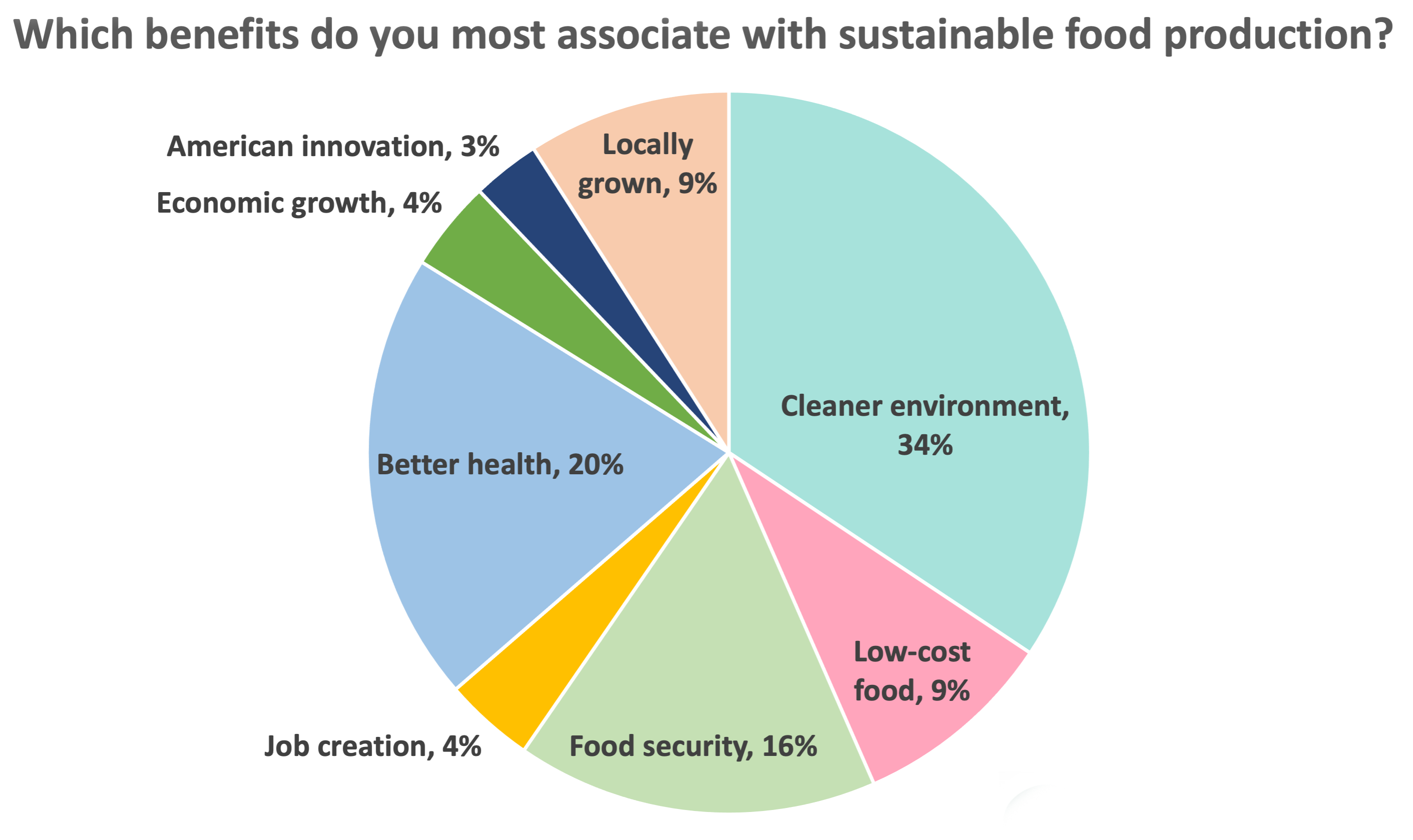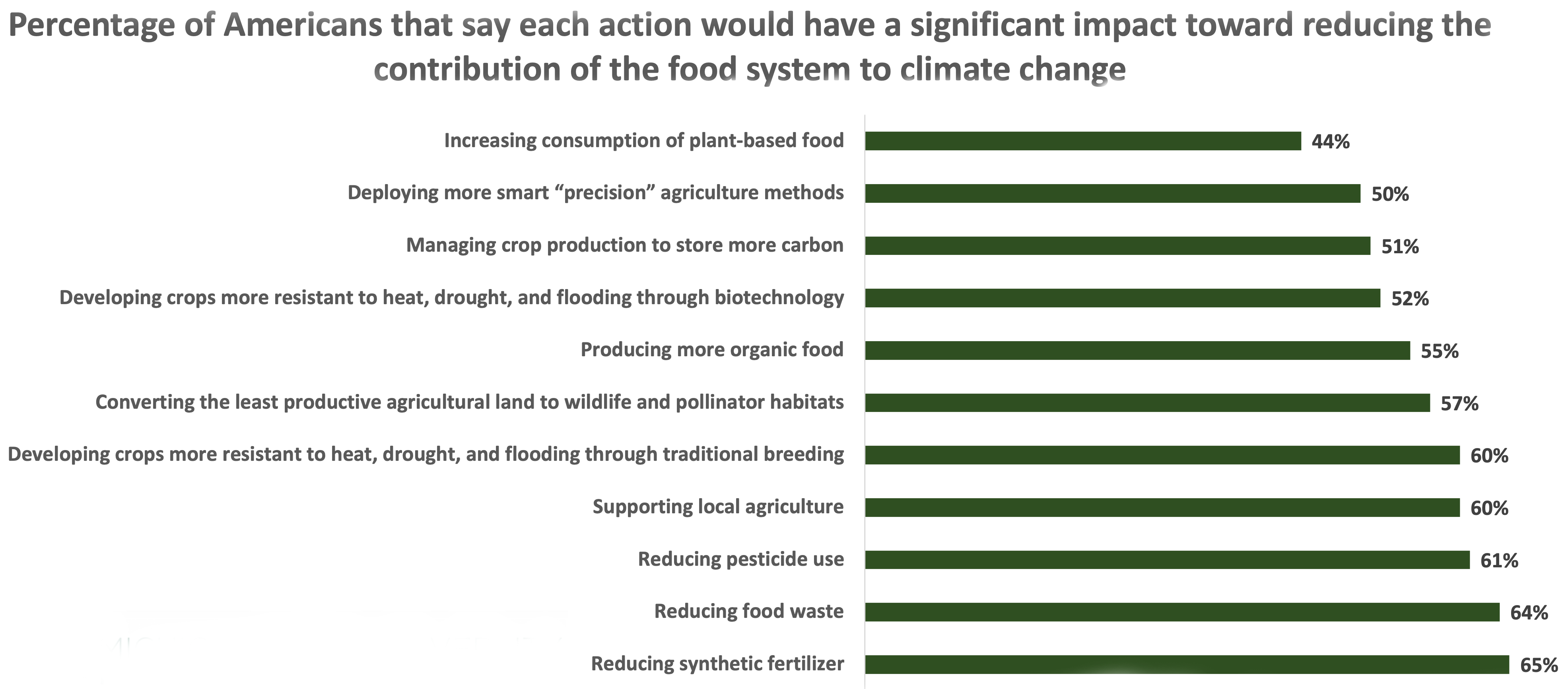New Food Literacy and Engagement Poll reveals public disconnect on food and climate change, rising interest in meat alternatives
In the Spring 2021 MSU Food Literacy and Engagement Poll, a majority of respondents say developing crops resistant to weather extremes would significantly impact greenhouse gas emissions.
EAST LANSING, Mich. -- The seventh wave of the Michigan State University (MSU) Food Literacy and Engagement Poll sampled 2,001 Americans on their attitudes and knowledge of food, agriculture and climate change. Notably, 41% say they never or rarely seek information about where their food was grown or how it was produced.
“As a nation, we celebrate our long history of farming and food production, yet so many of us have not been paying attention to how agricultural practices and emerging technologies sustain us,” said Sheril Kirshenbaum, co-director of the biannual survey. “The global food system also plays a very significant role in addressing climate challenges, but our results indicate that most Americans are not aware of the relationships between our diets and the planet.”
The March 2021 poll results reveal that 23% of Americans mistakenly believe that transportation produces the most greenhouse gas emissions in food production, even though it only accounts for 6%. Meanwhile 61% thought reducing pesticide use would limit the food system’s impact on climate change. While the use of pesticides has posed environmental problems, Kirshenbaum said it is not a big contributor to greenhouse gas emissions compared to other factors.

Only 44% of respondents were aware that increasing the consumption of plant-based foods could have a significant impact on the release of greenhouse gases. In reality, livestock and fish farms account for 30% of greenhouse gas emissions from food production, along with an additional 16% from land use changes for livestock [https://ourworldindata.org/food-ghg-emissions].
Respondents were also most likely to associate sustainable food production with a cleaner environment (34%) and better health (20%), while job creation (4%), economic growth (4%) and American innovation (3%) ranked much lower.
“According to the poll data, it appears we have a lot of work to do in terms of getting information out about the ways that sustainable food production can protect our environment, stimulate our economy and provide jobs,” noted Doug Buhler, co-director of the poll and director of MSU AgBioResearch. “It’s important that we help consumers better understand the food system to be more efficient and less wasteful.”

Additional survey highlights include:
- 41% of Americans are likely to purchase foods that look and taste identical to meat, but are artificially produced, up from 33 percent in February 2018,
- 52% of respondents recognized that developing crops more resistant to heat, drought and flooding through biotechnology would significantly impact greenhouse gas emissions.
- 87% say they take steps to reduce the amount of food wasted in their home.
- 56% trust academic or university scientists; 50 percent trust government scientists; and 48 percent trust industry scientists when it comes to the health and safety of food.
- 70% look for the term “natural” on labels when shopping for food, despite that natural may not necessarily mean a product is the safest or healthiest.
For more information about the MSU Food Literacy and Engagement Poll, including past results, click here.
Data from the MSU Food Literacy and Engagement Poll were weighted using U.S. Census Bureau figures, to ensure the sample's composition reflects the actual U.S. population. Launched in 2017, the poll is supported by MSU AgBioResearch. The survey, conducted twice per year, is intended to provide an objective, authoritative look at consumer attitudes and perspectives on key food issues, and is designed to help inform national discussion, business planning and policy development.



 Print
Print Email
Email




